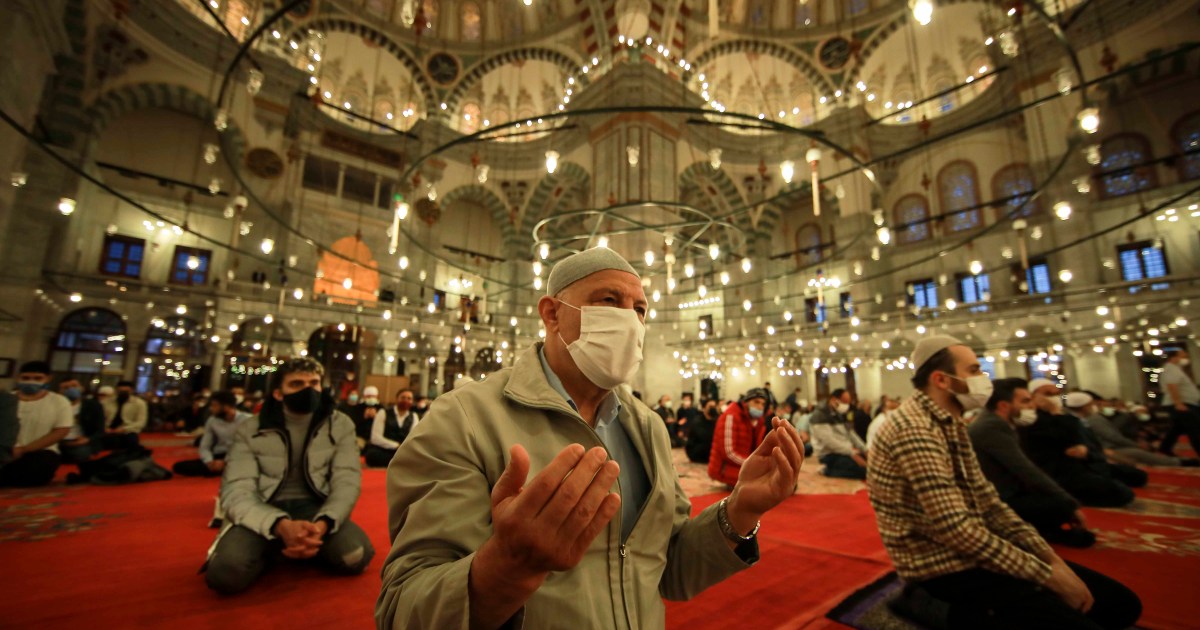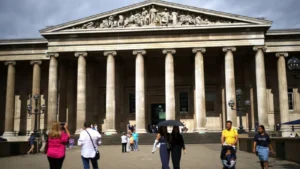
If we limit social gatherings with friends and family this Eid, we’ll be able to enjoy their company for years to come.
On May 13, 2021, some 1.4 billion Muslims across the globe will celebrate Eid al-Fitr to mark the end of the holy month of Ramadan.
Traditionally, this joyous Islamic festival represents a chance to reconnect with family and friends amid our busy lives, by coming together to share food and exchange gifts.
But the COVID-19 pandemic has changed all that, at least for now.
Last year’s festivities during Eid al-Fitr and Eid al-Adha, which follows it, were linked to a rapid increase in COVID-19 cases between July and September in several Muslim-majority countries. Although most governments had taken pandemic-related measures and cancelled or restricted celebrations, including the annual Hajj pilgrimage, many families still chose to come together.
The spike in COVID-19 cases following a religious holiday was not limited to Muslim-majority countries. Large numbers of infections and deaths were reported in other parts of the world. In Australia, for example, a family Eid gathering led to the identification of 14 cases in Melbourne’s north and southeast areas in June 2020, at a time when Australia had successfully brought its outbreak under control.
This Eid, many families around the world will mourn the loss of loved ones who fell victim to the pandemic, turning what should be a happy occasion into a day of longing and regret.
Other religious communities have also suffered from the spread of the virus as a result of holiday gatherings. For example, in March 2020, family and community get-togethers for the Purim holiday, which involves a traditional meal and exchange of gifts, accelerated the spread of COVID-19 in the Jewish community of Marseille, France, and across several cities in the United States, resulting in several epidemic clusters.
In the past year, there have been many small gatherings in confined spaces that together add up to a virtual global super-spreader event. The risks associated with mass gatherings have been well-documented – but I would argue that interlinked and synchronised small-scale family gathering may add more fuel to the COVID-19 fire.
Studies have shown that the secondary attack rate, which defines the proportion of contacts who develop infection or symptoms within the incubation period following exposure to a primary case, was highest in households (21.1 percent) – followed by contacts at social events with family and friends – at 5.9 percent.
As eminent epidemiologist Geoffrey Rose CBE has said, a large number of people at small risk may give rise to more cases of diseases than a small number of people at high risk.
Simply put, an intimate gathering of loved ones where people mingle freely may pose a graver threat than restricted contact at a large gathering with physical distancing and masks. Reducing the COVID-19 exposure risk by restricting gatherings to immediate family members can reduce outbreak risk at the societal level.
Although more studies are needed to evaluate the significance and contribution of small gatherings in sparking new waves of COVID-19, there is enough evidence from the early phase of the pandemic to suggest that such gatherings play a part in triggering outbreaks that increase virus spread within communities.
There is another important argument to limit gatherings by extended families and friends. Studies have shown that the more a virus is allowed to transmit between individuals, the more chances it has to evolve and accrue mutations that allow the virus to spread faster or evade the immune system. One such variant, B.1.1.7, was first detected in Kent, England, in September 2020. This variant has been cited as a cause for the exponential increase of COVID-19 infections in the United Kingdom. In fact, this acceleration may have been partly facilitated by gatherings during Christmas and the New Year, when the UK relaxed COVID-19 restrictions.
Although we need further research to study the contribution of the new variant B.1.617 driving the overwhelming increase in India’s latest COVID-19 surge, the mass gathering of nine million people at the Kumbh Mela that ran from mid-March to the end of April may have acted as a centrifuge, sending the COVID-19 to far-flung rural districts that had been virus-free.
As we meet and sit around the table with our loved ones, we might not realise how connected we are to the other people in our neighbourhood, towns, countries and the other 7.9 billion people that inhabit the Earth. Consider the idea of six degrees of separation Hungarian writer Frigyes Karinthy put forward in a 1929 short story – that is, you can select any person on Earth and reach them by going through a personal network of five acquaintances and their acquaintances. Rigorous experiments and robust studies have tested Karinthy’s six degrees of separation hypothesis. Estimates have ranged from four intermediaries using postcards to 3.57 intermediaries among the 1.59 billion people active on Facebook.
Now COVID-19 has smartly played the human connectivity game and exploited our social network, creating a once in a lifetime pandemic that has locked most of the world’s population in their homes, away from workplaces and schools, and resulted in untold suffering, with the loss of more than 3.2 million lives and close to $3.9 trillion in economic output.
Today we must all take a proactive role and consider cancelling small gatherings linked with religious and cultural festivals until the end of 2021 – or when the COVID-19 vaccine coverage reaches a sufficient level to interrupt transmission.
I urge my fellow Muslims to protect themselves by staggering or cancelling all family gatherings related to religious festivities until the end of 2021. If we make the right choices this week, we will be able to continue celebrating holidays for years to come with our parents and grandparents.
Of course, cancelling gatherings is not enough. To prevent another cycle of pandemic-induced misery, the world requires global solidarity among political and religious leaders for rapid and equitable distribution of vaccines in all countries.
May we all renew the bond of humanity. As Prophet Muhammad said: “The parable of the believers in their affection, mercy and compassion for each other is that of a body. When any limb aches, the whole body reacts with sleeplessness and fever.”
The views expressed in this article are the author’s own and do not necessarily reflect Al Jazeera’s editorial stance.








